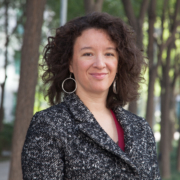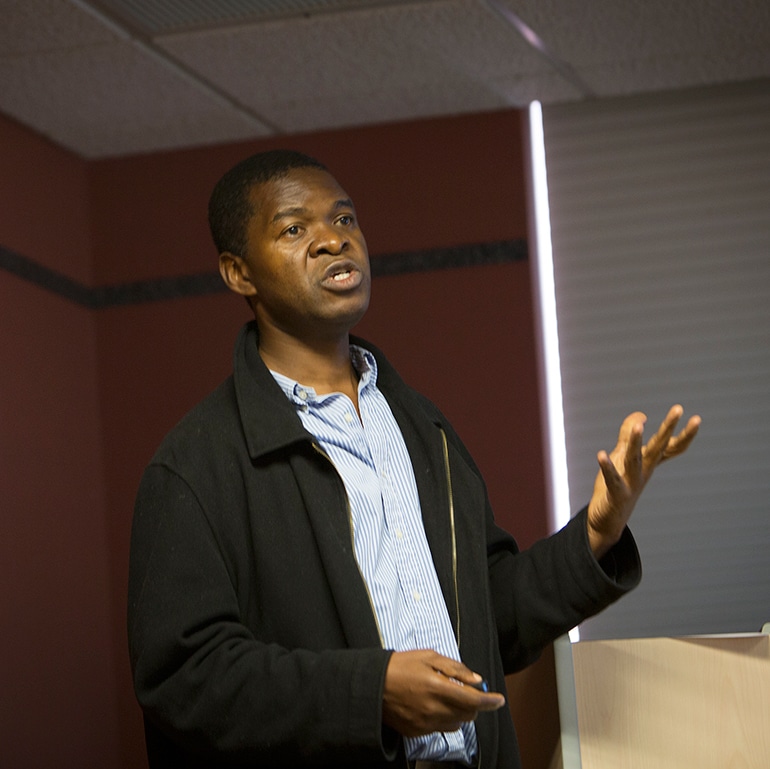Edward Vickers
Education in Post-Mao China
Since the death of Chairman Mao in 1976, China has experienced a “Reform and Opening” period. In education, this has meant a change from an egalitarian to an elite system. Examinations emerged as the primary way of sorting students. Those who did well on various examinations rose to the next level, working their way up to higher education.
This system, combining credentialism, competition, and Confucian traditions, has had profound consequences, including a rise in inequality and a growing divide between urban and rural communities.
My guest today, Edward Vickers, has a new co-written book called Education and Society in Post-Mao China, detailing the past forty years in educational development. This book is the first monograph in English to offer a comprehensive analysis of China’s educational development since the death of Chairman Mao.
Edward Vickers is a Professor in the department of education at Kyushu University, Japan. He specializes in education and history in East Asia.
Citation: Vickers, Edward, interview with Will Brehm, FreshEd, 61, podcast audio, February 20, 2017. https://freshedpodcast.com/edwardvickers/
Will Brehm 1:37
Edward Vickers, welcome to FreshEd.
Edward Vickers 1:40
Hi. Yeah, thanks for having me on.
Will Brehm 1:42
So, your new book looks at educational development in China since the death of Mao in 1976. So, why are these past 40 years called the reform and opening period?
Edward Vickers 1:56
Because that is what the Chinese call them.
Will Brehm 1:59
And what did they mean?
Edward Vickers 2:01
I mean, well, the reform and opening period effectively, implicitly means, signifies the break with the Mao era. Originally, that was what it was meant to signify. So, it means a break with the sort of extreme, egalitarian policies of the Cultural Revolution era -1966 to 1976- during which education was a particular focus of official policy. So, education was the sort of central tool for the regime during that latter part of Mao’s era. An essential tool in sort of attempting to create an ultra-egalitarian society in China. So, reform and opening signifies the radical break with that prioritization of egalitarianism, and actually a very rapid move towards a much more elitist and competitive model of education from 1978, I should say rather than 1976.
Will Brehm 3:10
Right, so it took two years before things started kicking in.
Edward Vickers 3:14
Yeah.
Will Brehm 3:14
And so, what were some of these educational reforms? So, if education was seen in the Mao period as being one of the main policies towards egalitarianism, what was the main break and how did it change?
Edward Vickers 3:27
Well, what happened during the Cultural Revolution was that -we will first start university entrance exams were abolished, higher education was radically reformed in ways that we will not go into. And so, in fact, before the formal announcement of reform and opening as an economic policy in 1977, the move was made to restore the competitive college entrance examination system -the Gaokao. Moves were also made to reinstate, and expand elite key schools, particularly at high school level, but in effect at every level of the education system. And these are schools which received sort of special funding from the government. More funding than normal schools. And so, basically the sort of mirror opposite of what had gone on during the Cultural Revolution. A highly elitist, highly selective model of education was reinstated from 1977 effectively.
Will Brehm 4:39
And why? Why was there a desire by the party, or the policymakers, to have this break from egalitarianism to this elite model that you have just described?
Edward Vickers 4:55
Well, they would say that this is because that model is more effective in a context of limited resources for educational development. This highly selective approach is necessary to rapidly foster the talent that a country like China needed to drive forward its economic development and technological development. And so that was the sort of rationale that was put forward. And in fact, one model that was often cited by leaders at the time Deng Xiaoping in particular was Meiji Japan, which has had a similarly sort of elitist approach to educational developments in the late 19th century.
Will Brehm 5:55
So, he was pointing to Meiji Japan as an example that China should try –
Edward Vickers 5:59
Well, yes, I mean, not specifically in the area of education, but more broadly in the area of development.
Will Brehm 6:08
And, in economic development, right.
Edward Vickers 6:11
Part of the context for that also being the fact that at the time that reform and opening began, Japan’s economic record seemed sort of, you know well beating, this was the year of Japan as number one. So, I think Chinese leaders were sort of looking across at Japan thinking, “Well, you know, what did they do, right?” But that is a mindset that goes back a long way in modern China. Sort of looking to Japan. But yes, in terms of the reasons why they went for this sort of highly selective, highly competitive model, I think, also, at a more sort of mundane and personal level. The leaders who came into power in the late 1970s were the people who had been basically victimized during the Cultural Revolution. They had been at the hard end of these policies that were extensively aimed at transforming China into a sort of radically socialist, egalitarian society. And what this did -and there is a very good book on this, in fact, by Suzanne Pepper, Radicalism and Education Reform in 20th-Century China. And she argues there that the leadership that came in after the Cultural Revolution had basically been reinforced through its experiences during the Cultural Revolution in quite traditional Chinese beliefs in the importance of selection and the importance of quality, fundamentally in education. The job of an education system is effectively or its sort of overriding purpose is to select talents of the highest quality for the service of the state. And I think that remains a dominant theme in education policy in China, down to the present.
Will Brehm 8:15
So, did these reforms in the late 1970s -did they work? Did they, I mean, create this elite system that could foster growth?
Edward Vickers 8:28
Whether it was responsible for fostering growth or not, is a question that I am not entirely qualified to answer. But you would have to say, I mean looking at the some of the students who have come out of China’s top universities, or these elite high schools that yes. I mean, if you concentrate resources in the way that the Chinese regime has done since the late 1970s, then the students who come out of these elite schools are going to be highly impressive academically in many cases, and this is this is what we see in China. But the question that needs to be asked I think is: what is the price that is paid for that?
Will Brehm 9:16
So, what is the price? What happened to those who weren’t selected to get into these elite schools?
Edward Vickers 9:23
Well, yes, I mean, well for a start, resources were -again, this is something that Suzanne Pepper in her book, published in the 1990s discusses- resources were consciously diverted from education in rural areas to fund these key schools. Or rather, spending on education in rural areas was cut because the government in the early reform era didn’t want large numbers of middle school, high school graduates from rural areas receiving an education that would encourage them to aspire to jobs that didn’t exist. Or basically give them aspirations beyond their station. So, there is a sort of element of social control underlying that elitism in the education system from the early reform period. And part of the background to that is the nature of the economic reforms at that time, which were largely focused on rural areas rather than urban areas. So, during the early reform period, the urban economy remains largely unreformed. So, state socialism continued by and large in the urban economy right through the 1980s. Whereas in the rural economy, there was much more opportunity for free enterprise of various kinds. But in education, despite the fact that the urban economy wasn’t offering opportunities for sort of entrepreneurial capitalism to such an extent in the 1980s, the elitism within the education system was creating a situation whereby from the 1990s opportunity was sort of radically divergent between different classes in Chinese society. So, from the 1990s in particular, inequality in urban society sort of really takes off.
Will Brehm 12:01
So, this inequality that kind of grows out of this system of elitism and the focus on the urban areas, instead of the rural areas- is this where the student movement that kind of resulted in the late 80s. Did that come out of that?
Edward Vickers 12:19
That largely springs out of a sort of mismatch between the direction of educational reform and economic reform, I think. So, you have this very, very elitist educational system in the 1980s but most of the products of that system coming out of key high schools and universities in urban China were finding themselves by the late 1980s, increasingly, sort of economically disadvantaged vis a vis individuals with far less education who were finding opportunities to make a fast buck. And what happened in the 1990s was that, and -I think, you know, this is part of the official response to the crisis in 1989- is that economic opportunities within urban China become far more aligned with, how can I put this, the sort of competitive nature of the education system. So, educational success and economic success go together from the 1990s far more directly than they did in the 1980s.
Will Brehm 13:43
Right. And, you know, one of the things that I always, I guess, have a hard time squaring is this connection between the kind of capitalist tendencies or economies that do exist in China but with the socialism that also exists. And it sounds like, you know, in the education system there is this, you know, rise of competition, making education as a positional good for your station in life. So, you know, how is this kind of dilemma or paradox squared in China and in education?
Edward Vickers 14:27
You mean, the sort of socialist ideology and the reality of education as a positional good.
Will Brehm 14:36
Yeah.
Edward Vickers 14:36
Well, I mean, it has been squared by basically emptying the term socialist of socialist meaning. So, the term socialist is frequently heard to this day in China. But if you ask people to define what it means, well, it does not mean egalitarianism. It does not mean a sort of generous or reliable welfare system. It means…what does it mean? [Laughter]. It means the party’s developmental agenda, essentially. The creation of a strong, economically prosperous China. But without questioning too much how that prosperity is distributed within society. It also means and if you look at politics or civics textbooks in China, it is clearly related to what you might call a scientific outlook. So, socialism equals science equals the inevitable sort of direction of China’s development of progress.
Will Brehm 16:00
Right. Is there an idea of meritocracy? So, if education, you know, the ability to do well on these high stakes tests and then get into good universities, it on the surface, it would seem like someone perhaps from a rural school who does well on certain tests could actually change their position in life.
Edward Vickers 16:25
Oh, yeah.
Will Brehm 16:26
And that does happen.
Edward Vickers 16:27
And that can happen. Although it is extremely rare. But yes, that can happen. And meritocracy is absolutely central to the legitimation of the Communist Party in the reform era.
Will Brehm 16:41
So, the state policies in the state rhetoric was included that idea of meritocracy, even if it was not in practice happening.
Edward Vickers 16:49
Yes. Yes. And of course, that is a respect in which, the policies and sort of educational philosophy of reform era China sort of draws on a very long tradition of meritocratic rhetoric in relation to education in Imperial China. I mean, this, of course is stereotypically the Chinese approach to education. So, yes, that is one respect in which contemporary China, if you like, draws on its Confucian traditions for the purpose of legitimating what is it actually a highly elitist and inegalitarian education system?
Will Brehm 17:36
Do you think that is a accurate reading of history of Confucius thought?
Edward Vickers 17:44
Well, yes. I mean, pre-modern, or Imperial China did not really have much of an education system in the way that we would think of it. What it had was an examination system. So, the state’s involvement in education, largely not entirely, but by and large, consisted in setting examinations. And of course, the purpose of those examinations was to select an elite for state service. Now, of course, the modern Chinese state’s involvement in education is far more comprehensive. But nonetheless, that orientation, that idea, that rather than the state existing to serve the educational needs of the masses, the products of the education system are there to serve the needs of the state -that orientation is still there, I think.
Will Brehm 18:47
And can you explain a little bit about, you know, the contemporary examination system in China?
Edward Vickers 18:54
Where should I start?
Will Brehm 18:55
Well, the big one that we know about, the Gaokao, is that how you pronounce?
Edward Vickers 19:00
The Gaokao. The college entrance examination. Yeah, well, I mean, that was, of course in many respects, post-revolutionary China, post-1949 China borrowed educationally from the Soviet Union. But the Gaokao was not a borrowing from the Soviet Union. The Gaokao was effectively a reinstatement of the kējǔ, the Imperial civil service examinations. Because what it did originally was to select the academically most able students from high schools, put them into college or university, and then put them into jobs in state entities during the Mao era. And it went right through the 1980s and early 1990s. So, in that respect, very similar to the Imperial civil service examinations. Because the products of these examinations were ultimately ending up in state service. But at the same time, the Gaokao is just one of a sorts of series of public examinations that sort of winnow out the academically less able students and leave you with the cream of the crop. And in some ways, the key examination is not the Gaokao. And this remains true today, the key examination is the Zhongkao, which is the examination that selects people for high schools, because that determines who gets to the elite high schools, which by and large are still state funded schools, but funded to a far higher level than sort of run-of-the-mill high schools, let alone vocational high schools.
Will Brehm 20:53
What about the more contemporary reforms in education since Xi Jinping has assumed power. Has education changed since the way you were describing it in the 90s where it is become?
Edward Vickers 21:11
Well, I mean, changes predate Xi Jinping, I mean. I think what it is fair to call serious attempts to address problems of educational equality really began in the early 2000s. But with respect to Xi Jinping, I mean, there have been further attempts under Xi Jinping. I think that we are seeing further attempts to address problems of educational inequality. At the same time, as seeing an intensification of demand for ideological conformity within the education system right the way through intensification of patriotic education. So, those are the two main things that are going on at the moment. Now, I mean, one example of an attempt to tackle inequality is tighter regulations regarding the zoning of school districts. So, rather than schools being able to sort of select competitively from a wide region, junior high schools for example, forcing them to recruit from their local area in the way that happens in many countries. But as also happens in many countries, when you do that, one of the things that can happen is that house prices shoot up near the best schools as those with money move in and buy up property so as to get their kids in that zone. And the problem with China is that social inequality has developed to such an extent during the reform and opening period, partly as a consequence of the highly elitist education policies that have been there. It is become so embedded, that if you, you try and address it through, for example, zoning regulations in some big cities. The divide between rich and poor is such that the rich will always find a way. Money will always find a way. So, education -and this, of course, applies well beyond China- on its own is not an effective tool for addressing inequality, including inequality in education. You cannot simply address inequality in education through education policy. And I think this is what the Chinese government is finding, and they are not alone. But I mean, just to go on to the other point, which is the ideological sorts of agenda for education that the Xi regime has. Well, this is highly nationalistic. Now, of course, nationalism in education content and policy is not new in China, but it is being ramped up at the moment.
Will Brehm 24:16
And why is that?
Edward Vickers 24:18
Well, I think it is that is also related to the issue of inequality and to anxieties within the Communist Party about the stability or the sustainability of the economic model. And essentially fears about party control. And not just party control, but anxieties on the part of Xi Jinping and his supporters about their position within the party, I think. Of course, Chinese education policymaking is very opaque. And so, it’s very, very hard to sort of read the tea leaves and say exactly what is driving these policies but you know generally speaking, if a regime starts ramping up rhetoric to do with patriotism and nationalism, loyalty, then you conclude that they are worried about loyalty.
Will Brehm 25:18
Speaking about some of this inequality that has emerged since the reform and opening period because of this elite system that was brought in, and then some of the attempts to address it that perhaps did not really work. It makes me wonder if there might be lessons to learn from the Mao era where egalitarianism seems to have been the kind of polar opposite of the system that emerged.
Edward Vickers 25:44
Well, this is one of the tragedies I think of modern and contemporary China is that, I mean, many scholars who have actually researched the Mao era which I haven’t. Myself and my co-author, Zeng Xiaodong, you know, we are not looking at the Mao era. But many scholars who have looked at that era have said, well, okay, I mean, the official view if you like, or the orthodox view of the Mao era in China today is that educationally it was a disaster, particularly in the culture. Well, not the entire Mao era, but the Cultural Revolution period. Whereas for example, Suzanne Pepper in the book I mentioned earlier, who looked in detail at that era and Han Dongping, who looked at the Cultural Revolution, education system as well, say well, actually, that era was quite successful in terms of expanding access to basic education. And in some senses, the economic development of China in the post-Mao era has drawn on that success in not universalizing but sort of near enough basic education. But, you know, the sort of official view of the Mao era does not really acknowledge that achievement. If you read you know official analyses, or orthodox analyses, of China’s educational development during the reform and opening period, you would conclude that the universalization of basic education was, you know, pretty much entirely an achievement of the post-Mao administration. But that is not really the case. And as Pepper shows, access to basic, particularly junior high school education in rural areas actually retreated. It actually declined after the advent of reform and opening. And so … what the sort of extremism and violence of the Mao era did that accompanied these reforms to basic education -and also, you know to a large extent the sort of trashing of higher education- what all of that did was to legitimize a reaction, you know, a swing of the pendulum to the other extreme in the post-Mao period. And that is had the unfortunate social consequences in terms of the embedding of an extremely high level of inequality that we see in China today, I think.
Will Brehm 28:40
What about looking forward? Having looked and studied the last 40 years of educational policy in China, from all different perspectives, the state perspective, but some more critical perspectives, what do you see happening in the years ahead as hard as that may be?
Edward Vickers 28:58
I do not really want to say what I see happening in terms of China’s educational development. I think that is very hard to say. And it will depend to a large extent on what happens in China more generally. What happens with Chinese society, what happens with Chinese politics. But in terms of research on education in China, what I would like to see is more in-depth study of the relationship between education and particularly educational intensity. And, for example, the nature of the labor market, the nature of social policy, the availability of welfare, aspects of society that educationalists don’t usually study, but which I think are very, very important for determining the intensity of competitiveness within the education system. Because in a society like China today where welfare provision is from the state and still, despite reforms in recent years remain very, very minimal. And therefore, so much depends on your sort of competitive success through education in terms of accessing key high schools, accessing key universities, getting the best job. And where you do not -because of the nature of the labor market, and the way in which qualifications are viewed- you do not really have a second chance, usually in China. The nature of the labor market, I think and the nature of the welfare system have a lot to do with the intensity of the education system, which drives out space for critical thinking, which drives out space for more liberal aspects of, more liberal sort of modes of pedagogy, despite the fact that many educationalists in China and some policymakers want to see these things. And so, I think not just in China, but in other societies, particularly in East Asia, I’d like to see more research that looks at the links between educational practices, educational reform, and the limits of educational reform and labor market, social welfare, etc. Because the argument you often see is that this educational intensity is a product of sort of culture. It is a product of Confucianism. And there may be certain truth in that. But I think actually, in East Asia, Confucianism, or Confucian ideas are often invoked to legitimize an extremely intense educational system. And I think we need to look not just at culture. I mean, culture explains everything, and it explains nothing. We need to look much more at social and economic systems, practices, to understand what is happening and what is not happening in education.
Will Brehm 32:38
Well, Edward Vickers, thank you so much for joining FreshEd.
Edward Vickers 32:42
Thanks very much.









